While it’s no surprise red wine can stain your teeth, let’s take a moment to see the surprising ways an occasional drink – or products you’d never think contained alcohol – can impact your oral health.
HOW ALCOHOL AFFECTS YOUR TEETH
As you may know after a night of too much imbibing, alcohol causes dehydration. With the resulting decrease in saliva flow, bacteria clings to tooth enamel instead of being washed away – increasing your risk of tooth decay and gum disease. The technical name is Xerostomia or “dry mouth,” with symptoms that include bad breath, a parched feeling in your mouth, and a shiny red appearance to the tongue. More worrisome, excessive alcohol consumption has been linked to oral cancer. When the body processes alcohol, it can bind to key proteins in the mouth and result in the formation of cancerous cells. Obvious symptoms include patches on the lips, gums or the mouth’s inner lining. Other symptoms are harder to detect without a professional dental exam.
LET’S NOT SUGAR COAT THE IMPACT
Sugar intake is a major risk factor in tooth decay. Bacteria in your mouth lives on sugar. Sipping on favorite cocktails offers these bacteria plenty of fuel on which to thrive. You should note, not all spirits have the same sugar content. For example, dry brut champagne typically has 0.5 grams of sugar per 5 ounce serving. A sweeter champagne can have anywhere between 8 and 10 grams of sugar. Wine has a similar spectrum. A typical dry white wine has roughly 3 grams of sugar per 5 ounce serving. A sweet red wine, sherry or port contains 8 grams of sugar. Even drinks labeled as non-alcoholic still contain trace amounts of alcohol.
THE HIDDEN PERPETRATORS
Alcohol is a key ingredient in common over-the-counter healthcare products, including:
Mouthwash – certain brands, especially those of the cosmetic variety, use alcohol as means to add certain flavors and as a temporary anti-bacterial agent.
Cold & Cough Syrups/Throat Lozenges – Sweetened to improve the taste, these meds do double damage to oral health. Syrup coats the teeth with sugar, while alcohol prevents saliva from protecting teeth surfaces.
Certain Non Prescription Drugs – Read labels carefully when choosing chloraseptic sprays, allergy meds and other over-the-counter drugs for fever, flu or sleep aids.
AFTER YOU TAKE THE DRINK, TAKE A LITTLE EXTRA TLC
I know avoiding alcohol completely is not realistic. I’m not suggesting that. What I do recommend is improved oral hygiene and overall preventive care. However, if you suspect your drinking is causing dry mouth or other oral problems, try drinking a glass of water between alcoholic beverages to decrease dehydration and dry mouth. And, try non-alcohol based alternatives for any over-the-counter meds you are taking. If problems persist, please come in and let’s address these issues as soon as possible.
